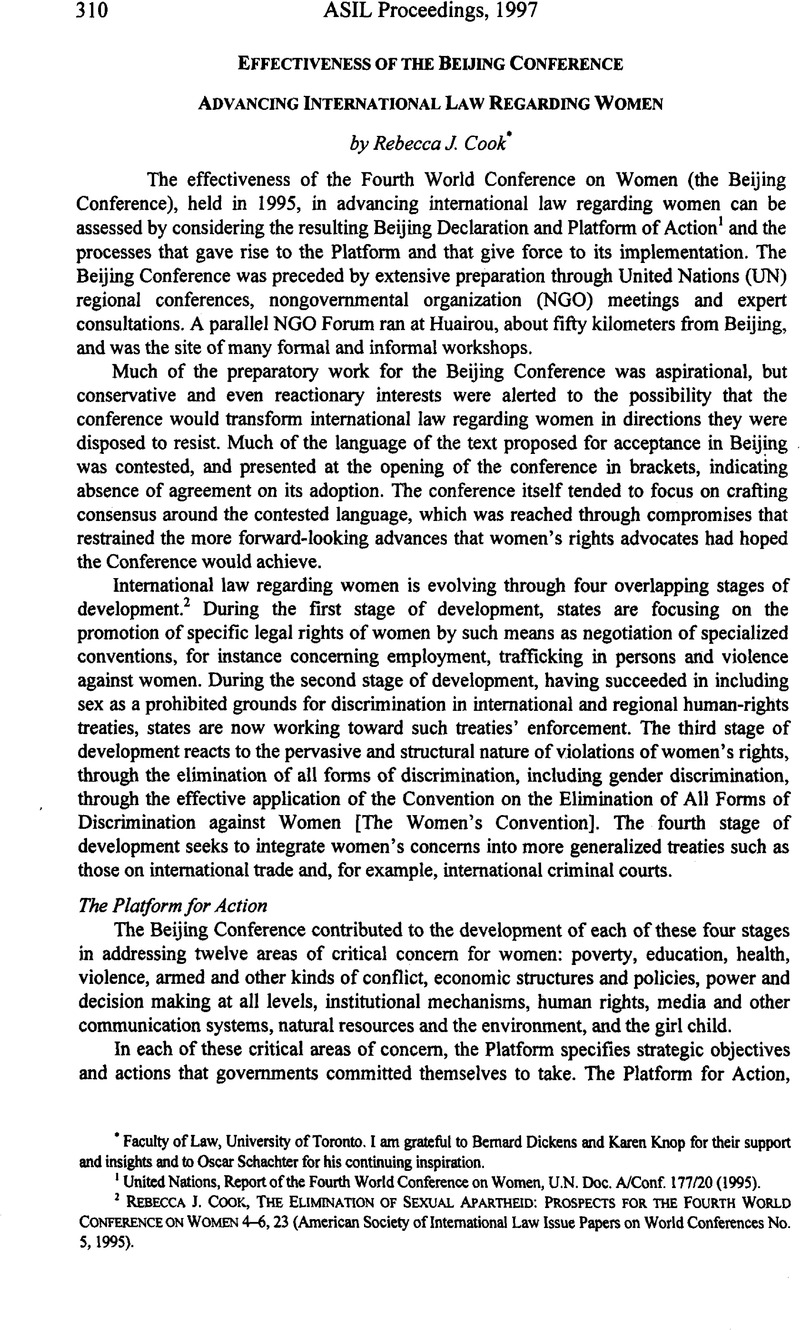Published online by Cambridge University Press: 28 February 2017

1 Vienna Declaration and Programme of Action, adopted by the World Conference on Human Rights, June 25, 1993, U.N. Doc. A/Conf. 157/23 (1993) [hereinafter Vienna Declaration].
2 The final version of the Declaration reaffirms the universal, indivisible, interdependent and interrelated nature of human rights. Bowing to governments that press for cultural relativity, a subsequent sentence notes the significance of regional particularities, and requires that historical, cultural and religious backgrounds are borne in mind. Id. at part 1, para. 5.
3 Vienna Declaration, supra note 1, sec. 2, para. 18.
4 See Amnesty International, Agenda for a United Nations New High Commissioner for Human Rights, 2-8 (Apr. 1997).
5 UN field workers and consultants are operating in: Albania, Burundi, Cambodia, Former Yugoslav Republic of Macedonia, Bosnia and Herzegovina, Croatia, Federal Republic of Yugoslavia, Abkhazia, Georgia, Haiti, Latvia, Malawi, Mongolia, Gaza, Palestine, Papau New Guinea, Rwanda, Togo and Zaire. Id. at 6.
6 Letter from Secretary General Kofi Annan to the President of the UN General Assembly, Apr. 17, 1997, http://www.un.org/reform/sginit/sumref.htm
7 Statement by Secretary General Kofi Annan to the UN Commission on Human Rights, Apr. 9, 1997.
8 See Report of the Preparatory Committee on the Establishment of an International Criminal Court, U.N. Doc. A/51/22 (Aug. 1996).
9 See Jelena Pejil/Lawyers Committee for Human Rights, Establishing an International Criminal Court: Major Unresolved Issues in the Draft Statute 16 (George Black ed., Aug. 1996).
10 Aspen Institute, Honoring Human Rights and Keeping the Peace: Lessons From El Salvador, Cambodia and Haiti (1995).